Back in the year 2000, Genie and I took our first trip together. We were living in New York City at the time, and we rented a car and drove up to Montreal.
After a great long weekend there, it was finally time to start the six-hour drive back home. So what did we do? We drove another couple of hundred miles in the opposite direction and spent the afternoon in Québec City. Then we finally drove home through the night, arriving in New York at about five in the morning, ready to catch an hour or two of sleep before heading to work.
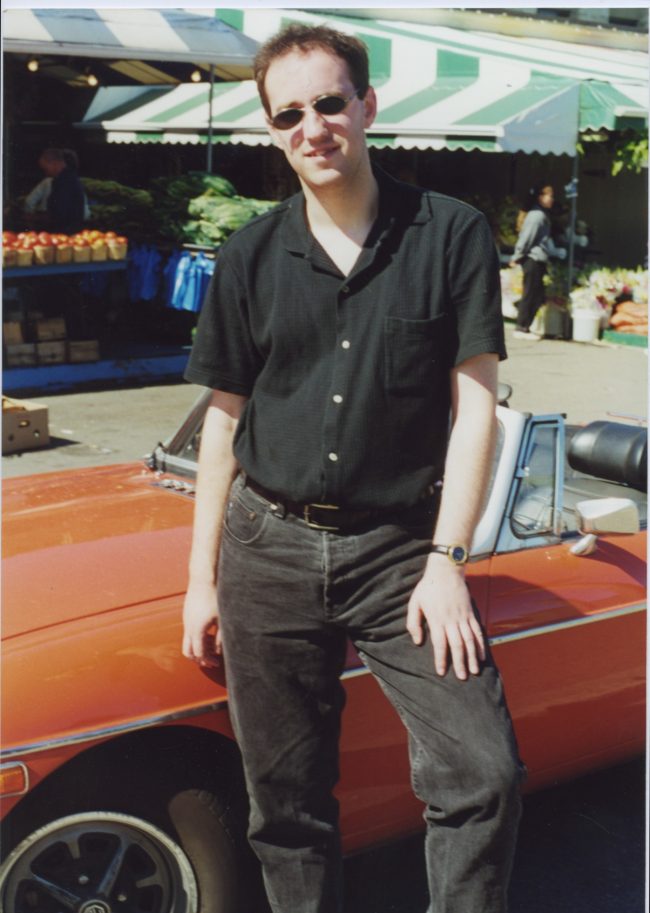
That trip set a pattern for our trips for years to come. We took long road trips across the U.S., driving further each time, and whenever we really, absolutely had to turn back, we went onward again instead.
The pull of the road: Moroccan edition
At the time of our Montreal trip, we were both working on Wall Street in jobs we didn’t like. At that time, the pull of the road was also the thrill of escaping from our lives, and the reluctance to return was more understandable.
But today, we don’t have unpleasant jobs. We live on the road. And yet we still feel that irresistible urge to go onward. We’ve driven 80,000 km on our trip so far, and it has rarely felt like a chore. We often end up driving much further than we had planned.
In Morocco, for example, we had originally only planned to go as far south as Guelmim, a town on the edge of the desert that’s known for its camel market—originally a place for the Tuaregs to come and trade, although now there are more tourists than Tuaregs.
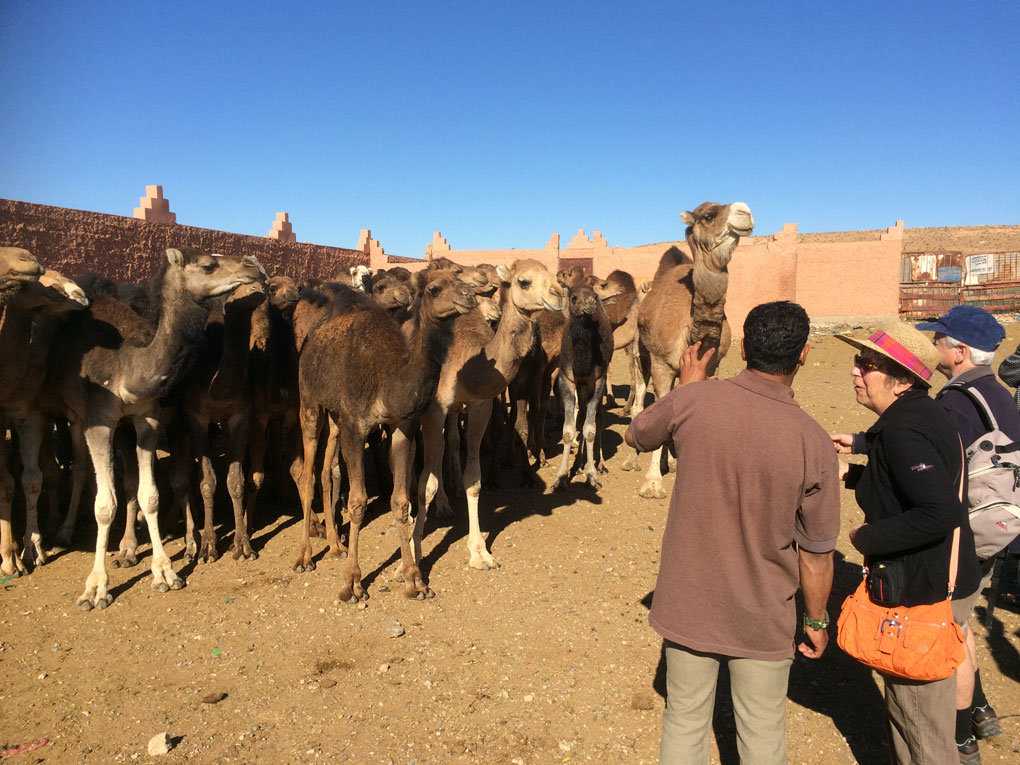
But then we heard that it’s quite safe to go on south to Dakhla, in the disputed territory of Western Sahara. It’s safe because Morocco doesn’t view the territory as Western Sahara—it views it as Morocco. International maps show a dotted border between the two, but the maps here show Morocco extending all the way down the Atlantic coast to Mauritania.
And on the ground itself, there is no border at all—at least not along the coast. Further inland, there’s a large area controlled by the Polisario Front, which aims for independence from Morocco, and there’s an impenetrable sand wall studded with landmines. But the coast road is far away from that.
So on we went, as far south as we could go.
The end of the road—for now…
And then we reached the following sign:

A sign like that is like a red flag to a bull. I’ve always been fascinated by Dakar and wanted to visit. And Nwakchout/Nouakchott, the capital of Mauritania, is not somewhere I thought I’d ever see on a road sign. We wanted to go on, but the pull of the road finally came up against reality. You need a visa to enter Mauritania. The UK government advises against all but essential travel due to the threat of terrorism and kidnapping, the same reason the Paris-Dakar Rally now takes place in South America.
I’ve heard that people still make the trip anyway, and maybe one day we will, but not without a lot more planning. We have quite a spontaneous approach to our travels, but we don’t take stupid risks. So we turned back and started heading north.
What’s the point?
The journey from Guelmim to Dakhla and back was about 1,000 km in each direction. It was exhausting, and most of the way it was a flat lunar landscape—it is desert, yes, but mostly not of the romantic dune variety. Instead, it’s mostly hamada—a flat, rocky, barren world, completely featureless for mile after mile.
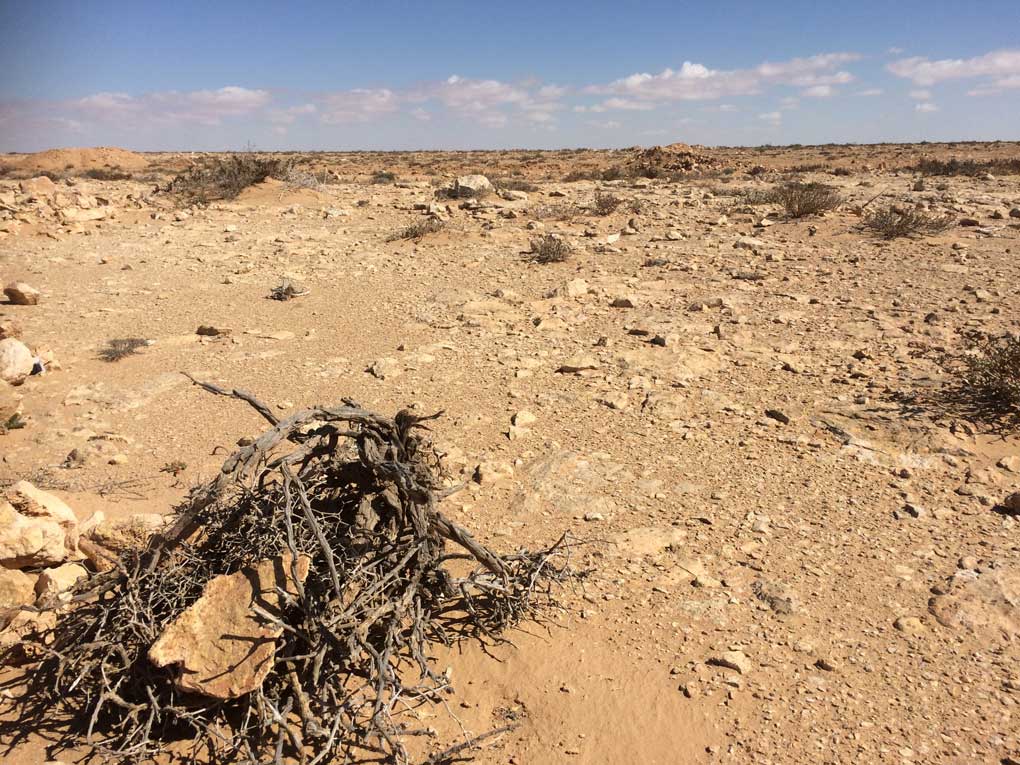
So what was the point of it all? There were no real sights to see, and it certainly wouldn’t make the highlights of Morocco. We’re not even interested in kitesurfing, which is the most popular reason to visit Dakhla.
It’s hard to explain, but I think it’s the same reason why we pressed on to Québec City and gave ourselves a nine-hour night drive back to New York, instead of doing the sensible thing and going home. It’s about wanting to see what’s out there, whether it’s interesting or not, whether it’s comfortable or uncomfortable.
Both Genie and I grew up in quite small, restricted environments—Genie in a Caribbean island just 21 miles long and 14 miles wide, and me in the suburbs of London. The absurdity of doing a road trip in Britain was the subject of my first novel, On the Holloway Road. I always yearned for large horizons and big, open spaces. There’s something fascinating about rolling along a highway, seeing the horizon change and unfold new sights with each passing mile.
Or maybe it’s just that the constant motion gives the illusion of forward motion and meaning in our lives. Maybe we’re still trying to escape—not from a boring job, but from the quagmire of existential dread. Maybe it’s a crude kind of Futurism. Maybe we’re using speed and technology to try to outrun old age and death.
Clearly it’s something I need to think about more. I’d love to hear your thoughts, as always. What does road travel mean to you? Do you enjoy it, or is it just about getting from A to B? Do you prefer arriving at the destination?
In the meantime, I’ll leave you with some shots from the trip to Dakhla and back.

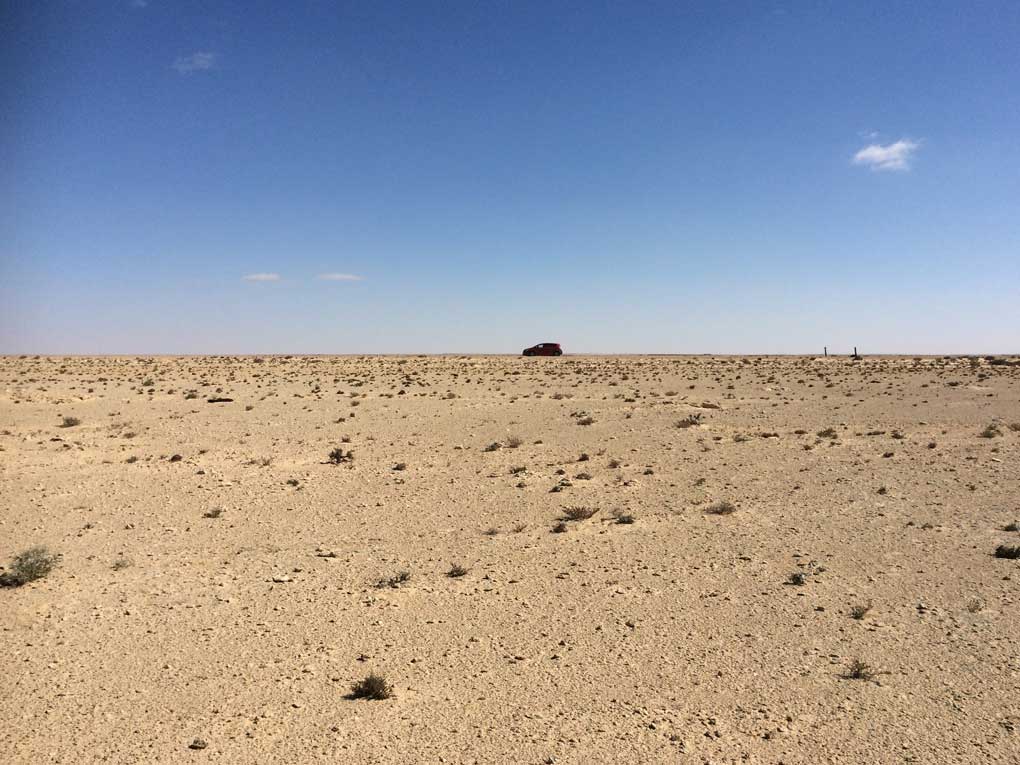
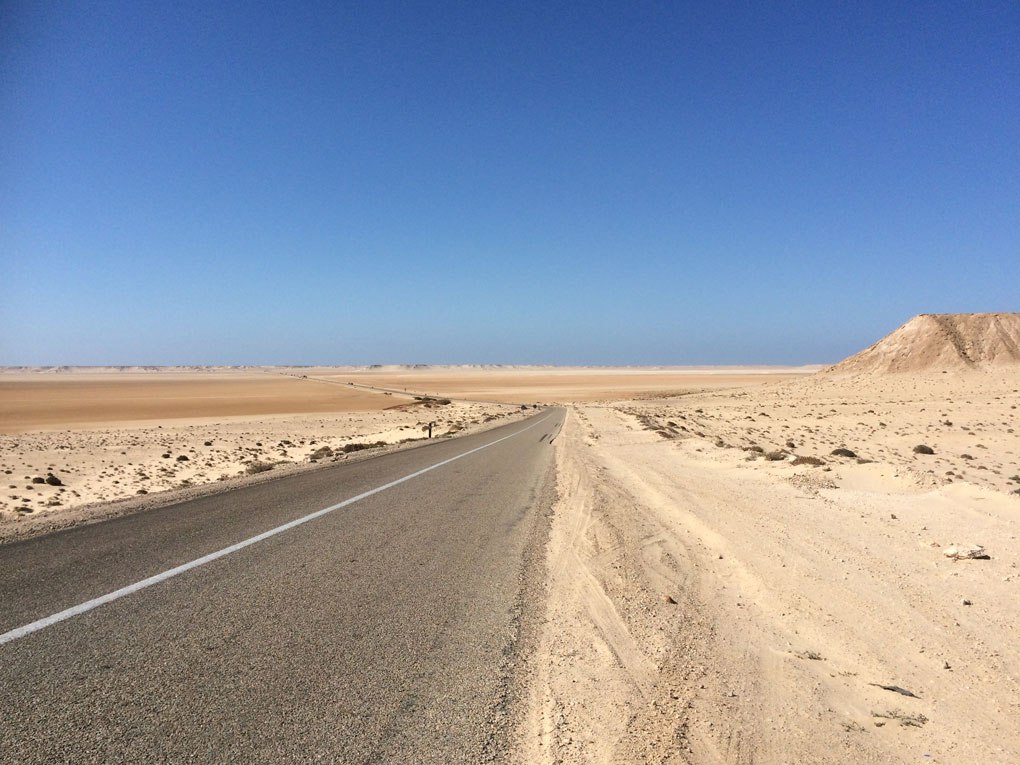
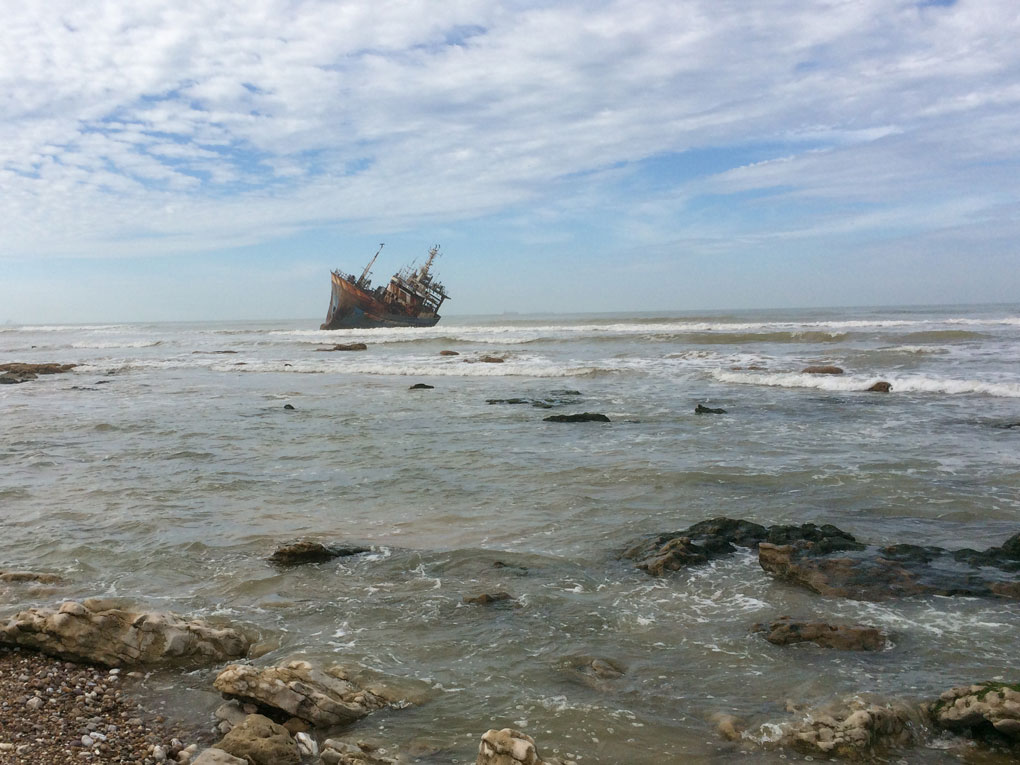
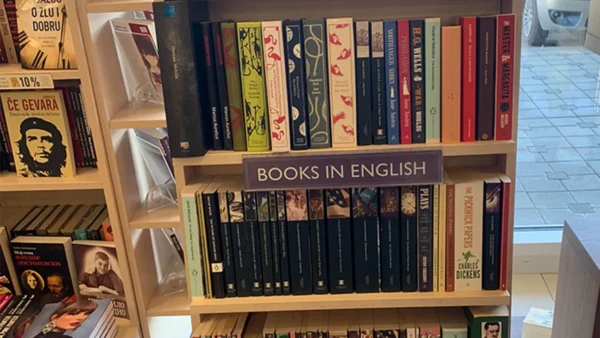
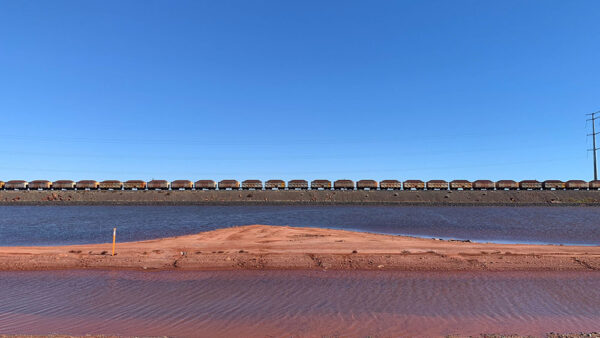
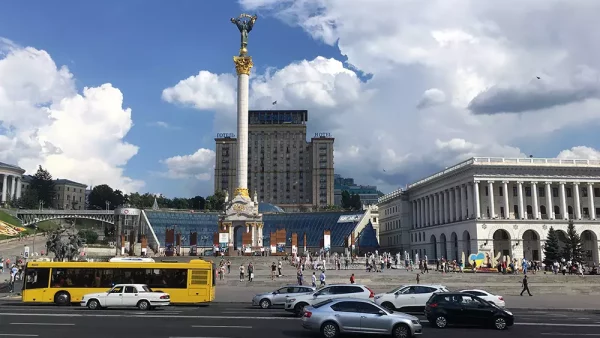
There are 6 comments
Great pictures. It makes me want to go to Morocco again and see the South.
Sadly, I’ve never had unplanned road trips because we travel with our children. Not finding a hotel room for them to sleep at night is not an option. So, we stick to the plan.
I don’t get bored during roadtrips even when the landscape is monotonous. (like driving through Oklahoma or sometimes in Québec where it was just pine tree after pine tree and then another pine tree.)
Thanks Emma! Where did you visit in Morocco before?
I can understand that about the unplanned road trips. Maybe as they get older, it’ll become easier (if you want to do it). I think teenagers might love an unplanned trip 🙂 We found that in the U.S., there’s almost always a motel available somewhere. Sometimes not the kind of place you’d want to take small kids to, but older kids could cope OK. And these days there’s the internet to help you avoid the truly awful places (in our pre-smartphone trips, we stayed in a few very dodgy places—when the receptionist was behind bullet-proof glass and asked whether you wanted the room for the whole night or just an hour, it was usually a bad sign!).
We mostly stayed in cities (Marrakech, Fes,Meknès) and went a bit in the Atlas. It’s a beautiful country.
True, the kids get older and there are tons of motels in the US. We’ll see that when we go back after they have elected another president. I’m not going back there as long as he’s in power.
(Not sure I want to go to the UK at the moment either and hope I won’t be thinking about emigrating next May.)
I hear what you’re saying about the US and UK, and things aren’t looking good in France either. Maybe we should all meet up in Canada 😉 Trudeau isn’t perfect, as a recent commenter pointed out to me, but at least he shares some of the basic human values that until recently I thought most of us agreed on.
We travel every chance we get. Our travels started similar to yours and Genie’s but we are much older. We were both mourning the deaths of our spouses when we met and have never been apart since. We started with small adventures but that need to go further kept cropping up, even when we climbed mountains! It was always,” let’s keep going.” We’ve been lost and hungry in the Pyrenees, come close to sleeping in our car more than once and sometimes got grouchy when we didn’t stop to rest. It’s not just foreign travel we like. We like to go to other areas of the country to get an idea how folks live their lives away from the coasts. I want to explore as long as we possibly can, and when we’re not off somewhere, I listen to the train whistle in the distance and write poems.
I love this comment, Barbara! I can really picture you sitting there writing poetry and listening to the train whistle in the distance. That is a truly magical sound. The trains in the UK don’t usually make a noise, and when they do, it’s an ugly diesel honk. But I love how U.S. trains really do whistle in a way that reminds me of classic American tales of people hopping a caboose from state to state 🙂
It sounds as if you and your partner have a lot in common with Genie and me (well, apart from the climbing mountains part!). We’ve got lost many times and got very close to sleeping in the car (and one time in West Virginia, we almost ended up sleeping in the car with an empty gas tank!). For us, too, it’s more about “how folks live their lives”—in fact, that phrase is just perfect for describing our travelling style. It doesn’t have to be a distant location either—when we lived in London and New York, I often used to just take a bus or train to a new neighbourhood, just to walk around and see how folks lived over on that side of town.